It’s more than evident to all of us that compensation plays a significant part in employees’ level of motivation. Well paid employees will try to do even better as they see their efforts getting rewarded. Employees treat customers, vendors, investors the way they are treated by the company. Well paid employees go out of their way to please the partners in your company’s progress. Poorly paid employees tend to be insensitive to the problems faced by customers, vendors, investors, and even other employees.
Given how vital compensation is, we decided to see if companies are doing justice to this topic. Recently we conducted a survey in which we asked the same set of questions to the employees and the HR managers. Here are some insights from the survey
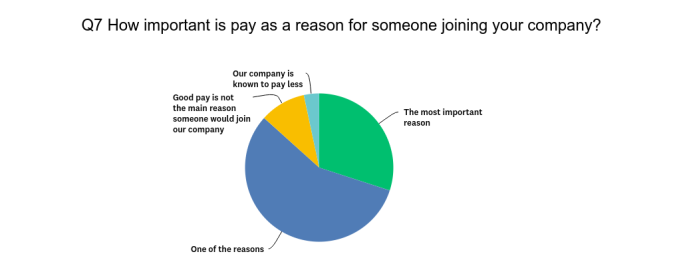
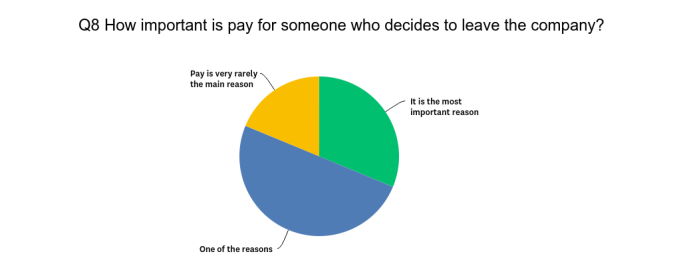
Both employees and HR managers agree that pay is one of the main reasons why someone joins a company, and it’s also one of the main reasons for someone to leave.
Table: Pay is important

Despite being one of the most important factors; the majority of the respondents said that compensation is never discussed openly as it’s against the company culture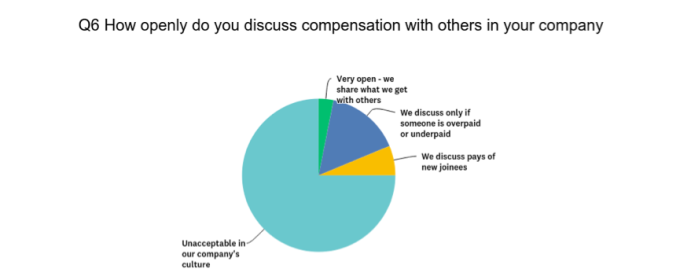
Table: Yet we avoid discussing pay with employees

The majority of the respondents agreed that among other factors, an important one is how indispensable you are to the company- which is counterproductive as it incentivizes people to become indispensable by holding secrets and not letting others learn.
The majority of the respondents also felt that the relationship with superiors is one of the main factors that determines their compensation. Being a team player is good, but we run the risk of surrounding our managers with sycophants by relating pay with personal relationships.
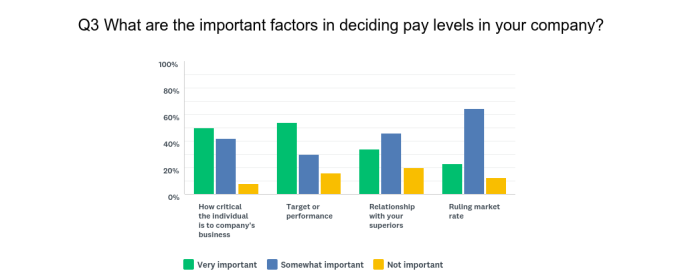
In general, we need to be more objective in determining pay and not leave room for guessing. Employees attribute wrong motives when they have no clarity and transparency on why they are not getting what others are getting.
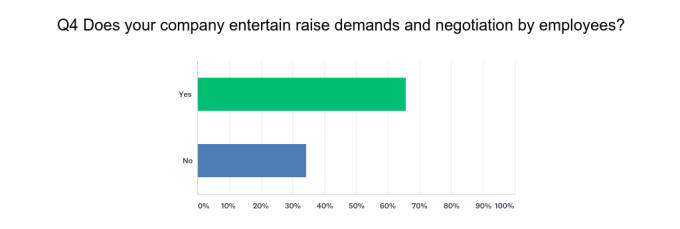
To add to this, most companies seem to entertain ad-hoc requests by employees for pay negotiations. This clearly shows the lack of confidence by the companies in their compensation policies. Are companies sending a wrong signal by encouraging employees to negotiate? Shouldn’t the companies insist on adhering to their compensation policies?
Table: Are we giving a wrong signal?
Compensation policies
Many companies have pre-determined bands having
- A fixed minimum
- A fixed maximum
- A fixed annual increment
This age-old structure doesn’t have any flexibility. In this model, the compensation is by and large dependent on seniority and tenure. Companies need to recognize that two people with the same level of seniority or experience can be significantly different in their performance.
One out of 4 companies announces a fixed percent increment every year. This policy doesn’t encourage high performers. On the contrary, under-performers get unjustifiably rewarded.
In our sample, there was no company having a simple compensation model that could be shared and understood by everyone. In the next part, we will discuss a model that is simple, easily understood and addresses many of the issues raised in this article. It’s not just a theoretical model. This model is in operation in the author’s company for the last several years.















